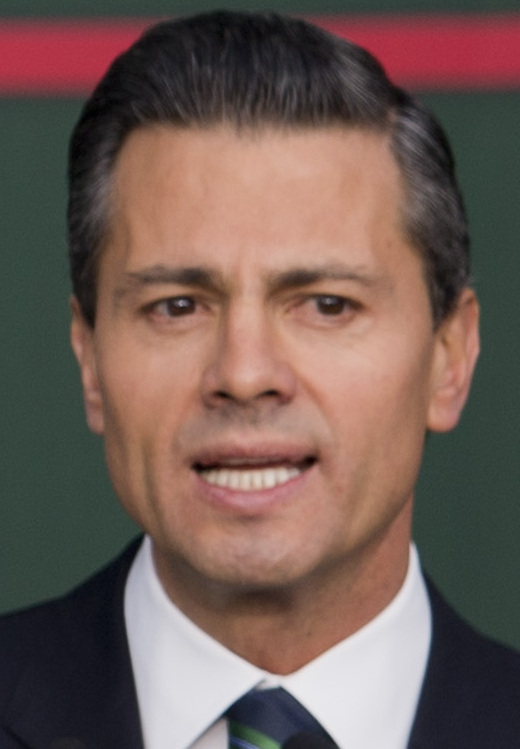MEXICO CITY — Mexico’s president announced a nationwide anti-crime plan on Thursday that would give Congress the power to dissolve local governments infiltrated by drug gangs, and give state authorities control over often-corrupt municipal police.
The plan announced by President Enrique Pena Nieto came two months after 43 students at a teachers college in the Guerrero city of Iguala were reportedly killed and incinerated by a drug gang working with local police, and massive marches have been held to protest their disappearance.
Pena Nieto suggested Thursday’s plan was influenced by the Iguala tragedy, whose “cruelty and barbarity have shocked Mexico.”
“Mexico cannot go on like this,” Pena Nieto said. “After Iguala, Mexico must change.” As if to underscore the problem, authorities said Thursday they had found the decapitated, partly burned bodies of 11 men dumped on the side of a road in the southern state of Guerrero.
The president’s plan would also relax the complex divisions between which offenses are dealt with at federal, state and local levels. At present, some local police refuse to act to prevent federal crimes like drug trafficking. It would also seek to establish a national identity number or document, though it was unclear what form that would take.
The plan would focus first on four of Mexico’s most troubled states, Guerrero, Michoacan, Jalisco and Tamaulipas, sending more federal police and other forces to the ‘hot land” area of the first two states, where the government has already sent significant contingents of federal police and soldiers.
The reforms, some of which would require constitutional changes, will be formally presented next week. They would include a single, nationwide emergency telephone number, which the president said could be “911,” as in the United States. But Pena Nieto was vague in describing some reforms.
The focus on corrupt local governments reflects the shocking accusations made about the mayor of Iguala, Jose Luis Abarca. Prosecutors say he collaborated with a local drug gang and ordered the detention of the students by local police, who turned them over to gang gunmen.
Municipal governments currently enjoy high levels of autonomy and control their own police forces, something the president is now seeking to weaken. But it was not clear whether the new plan would eliminate local police forces, or simply change their command structure.
Similar broad, federal anti-crime plans announced in 2004 and 2008 brought some improvements in areas such as vetting of police, but failed to prevent some entire municipal police forces from being co-opted by crime gangs. As a result, Mexicans have become skeptical of such announcements.
Send questions/comments to the editors.



Success. Please wait for the page to reload. If the page does not reload within 5 seconds, please refresh the page.
Enter your email and password to access comments.
Hi, to comment on stories you must . This profile is in addition to your subscription and website login.
Already have a commenting profile? .
Invalid username/password.
Please check your email to confirm and complete your registration.
Only subscribers are eligible to post comments. Please subscribe or login first for digital access. Here’s why.
Use the form below to reset your password. When you've submitted your account email, we will send an email with a reset code.